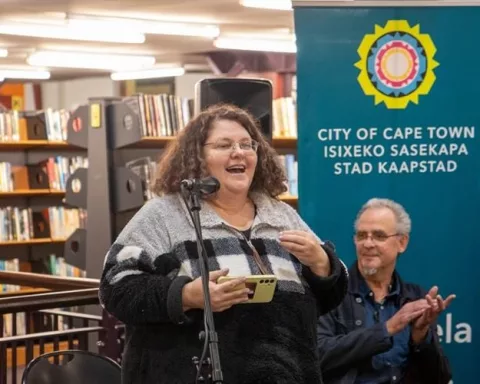The financial sustainability of South Africa’s water sector is being addressed in an upcoming workshop, with representatives from various stakeholders coming together to discuss steps needed to ensure sustainability. The workshop will provide collaboration and knowledge sharing opportunities among key stakeholders to develop a stronger and resilient water infrastructure system in South Africa. Initiatives like this are crucial in addressing the challenges the sector faces, and collaboration among government authorities, private sector entities, and public sector organizations will be critical in surmounting financial challenges and ensuring the well-being of the nation’s population.
What is the upcoming workshop on the financial sustainability of South Africa’s water sector about?
The workshop aims to promote the financial sustainability of the water sector in South Africa as part of the implementation of the third National Water Resources Strategy (NWRS-3). Representatives from various water sector stakeholders will discuss the detailed steps required to ensure the financial sustainability of the sector, in line with the strategic goals of the NWRS-3. The event will provide a platform for collaboration and knowledge sharing among key stakeholders to develop a stronger and more resilient water infrastructure system in South Africa.
Dr. Sean Phillips, the Director-General of the Department of Water and Sanitation (DWS), is set to join government authorities, executives from the Trans Caledon Tunnel Authority (TCTA), and Standard Bank representatives at a workshop on October 12, 2023. The event, which will be held at the Standard Bank Head Office in Johannesburg, focuses on promoting the financial sustainability of the water sector as part of the implementation of the third National Water Resources Strategy (NWRS-3).
South Africa grapples with a variety of water security challenges, such as insufficient maintenance of water infrastructure, inadequate funding for investment, recurring droughts, uneven access to water and sanitation services, and a lack of skilled workers, particularly at the municipal level. To address these issues, the DWS continuously oversees the sector, formulating proactive and responsive strategies to ensure sustainable water management.
The NWRS-3 functions as a legal tool for enacting the National Water Act (Act 36 of 1998) and is critical for the effective management of South Africa’s water resources across all sectors, aligning with the national government’s developmental aims. Reviewed every five years, the NWRS offers guidance on water resource management and serves as the foundation for financial sustainability across the entire water and sanitation value chain.
Collaborative Workshop to Address Financial Challenges
During the upcoming workshop, representatives from various water sector stakeholders will come together to discuss the detailed steps required to guarantee the financial sustainability of the sector, in line with the strategic goals of the NWRS-3. By attending this event, participants will have a chance to contribute to the development of a stronger and more resilient water infrastructure system in South Africa.
The workshop provides a valuable platform for collaboration and knowledge sharing among key stakeholders, given the importance and complexity of water management in South Africa. The partnership between government authorities, private sector representatives like Standard Bank, and public sector organizations such as the TCTA showcases a joint commitment to tackling the country’s water security challenges and ensuring the well-being of its citizens.
Standard Bank’s involvement in this initiative is particularly significant, as it underscores the increasing acknowledgment of the private sector’s essential role in supporting sustainable water management. As one of South Africa’s largest financial institutions, Standard Bank can offer valuable insights and resources to help bolster the financial sustainability of the country’s water sector.
Sharing Knowledge and Forging Partnerships
The workshop also presents stakeholders with an opportunity to engage in open dialogue and share best practices, allowing them to discover innovative solutions and establish partnerships that can help overcome the sector’s financial hurdles. Through this joint approach, attendees can work together to achieve the strategic objectives set out in the NWRS-3, ultimately contributing to the long-term financial sustainability of the water sector.
As South Africa continues to confront water security issues, initiatives like the NWRS-3 workshop are crucial in charting a course towards a more sustainable future. Collaboration and knowledge exchange among government authorities, private sector entities, and public sector organizations will be critical in surmounting the sector’s financial challenges and ensuring the well-being of the nation’s population.
In summary, the upcoming workshop on the financial sustainability of the water sector represents a significant milestone in the implementation of the NWRS-3. The event attests to the dedication of government authorities, private sector organizations, and public sector entities in addressing the water security challenges that South Africa faces. By uniting and sharing knowledge, participants can work together to develop innovative solutions, forge partnerships, and ultimately achieve the strategic objectives laid out in the NWRS-3, ensuring the long-term financial sustainability of the water sector.
1. What is the purpose of the upcoming workshop on the financial sustainability of South Africa’s water sector?
The purpose of the workshop is to promote the financial sustainability of the water sector in South Africa as part of the implementation of the third National Water Resources Strategy (NWRS-3). Representatives from various water sector stakeholders will discuss the detailed steps required to ensure the financial sustainability of the sector, in line with the strategic goals of the NWRS-3.
2. Who will be attending the workshop?
Representatives from various stakeholders will be attending the workshop, including government authorities, executives from the Trans Caledon Tunnel Authority (TCTA), and Standard Bank representatives.
3. When and where will the workshop take place?
The workshop will take place on October 12, 2023, at the Standard Bank Head Office in Johannesburg.
4. Why is financial sustainability important for South Africa’s water sector?
Financial sustainability is important for South Africa’s water sector because the sector faces various water security challenges, such as insufficient maintenance of water infrastructure, inadequate funding for investment, recurring droughts, uneven access to water and sanitation services, and a lack of skilled workers, particularly at the municipal level. Ensuring financial sustainability is crucial in addressing these challenges and ensuring the well-being of the nation’s population.
5. What is the National Water Resources Strategy (NWRS-3)?
The NWRS-3 is a legal tool for enacting the National Water Act (Act 36 of 1998) and is critical for the effective management of South Africa’s water resources across all sectors, aligning with the national government’s developmental aims. Reviewed every five years, the NWRS offers guidance on water resource management and serves as the foundation for financial sustainability across the entire water and sanitation value chain.
6. How does the workshop promote collaboration and knowledge sharing among stakeholders?
The workshop provides a valuable platform for collaboration and knowledge sharing among key stakeholders, given the importance and complexity of water management in South Africa. Representatives from various water sector stakeholders will come together to discuss the detailed steps required to guarantee the financial sustainability of the sector, in line with the strategic goals of the NWRS-3. Through this joint approach, attendees can work together to achieve the strategic objectives set out in the NWRS-3, ultimately contributing to the long-term financial sustainability of the water sector.
7. What is the private sector’s role in supporting sustainable water management?
The private sector plays an essential role in supporting sustainable water management. As one of South Africa’s largest financial institutions, Standard Bank’s involvement in the initiative underscores the increasing acknowledgment of the private sector’s vital role in bolstering the financial sustainability of the country’s water sector.
8. How can initiatives like the workshop help South Africa’s water sector overcome financial challenges?
Initiatives like the workshop are crucial in addressing the water security challenges that South Africa faces. Collaboration and knowledge exchange among government authorities, private sector entities, and public sector organizations will be critical in surmounting the sector’s financial challenges and ensuring the well-being of the nation’s population. Through open dialogue and sharing best practices, stakeholders can discover innovative solutions and establish partnerships that can help overcome the sector’s financial hurdles, ultimately contributing to the long-term financial sustainability of the water sector.








